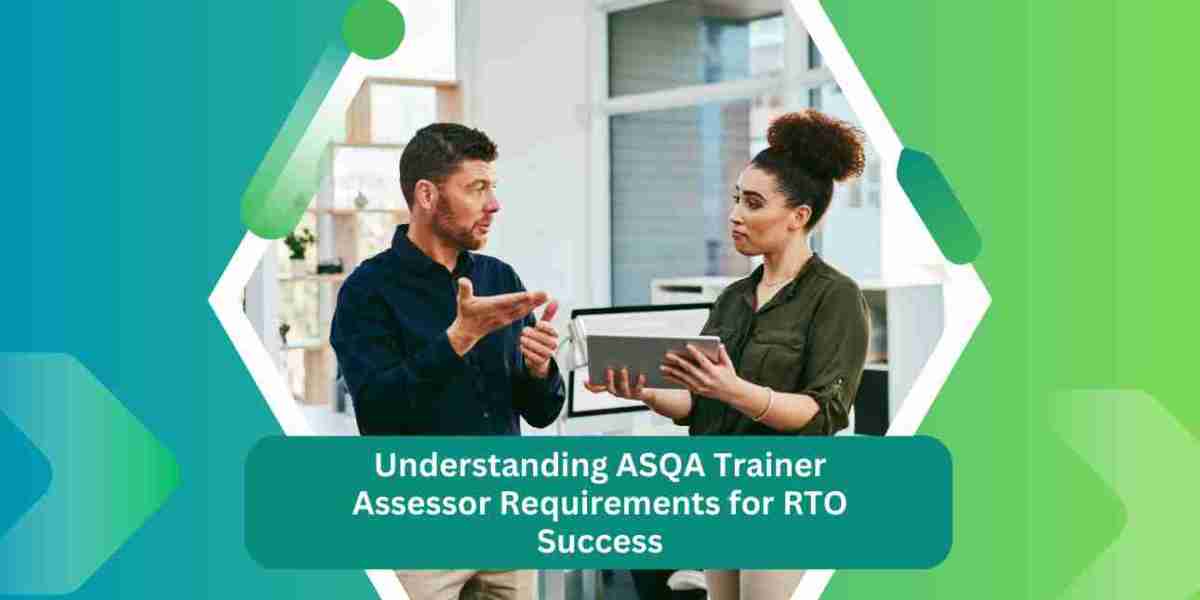In the Australian vocational education and training (VET) sector, Registered Training Organizations (RTOs) are required to meet stringent standards to ensure that training and assessment are conducted effectively, fairly, and in line with industry needs. One of the most critical aspects of these standards is the qualification and competency of trainers and assessors. The Australian Skills Quality Authority (ASQA) sets clear trainer and assessor requirements to ensure that RTOs deliver high-quality education and training. Understanding these requirements is essential for RTO success, as non-compliance can lead to regulatory action, reputational damage, and a loss of business.
This article explores the ASQA trainer and assessor requirements, why they matter, and how RTOs can meet these standards to ensure success.
What is ASQA?
The Australian Skills Quality Authority (ASQA) is the national regulator for the VET sector. Its role is to ensure that RTOs meet the standards required to deliver nationally recognized training and qualifications. ASQA's primary responsibility is to protect learners, maintain the integrity of qualifications, and promote confidence in the Australian VET system. To achieve these goals, ASQA sets standards for RTO operations, including those related to the qualifications, skills, and experience required of trainers and assessors.
Why ASQA Trainer and Assessor Requirements Matter
The qualifications and competencies of trainers and assessors play a central role in maintaining the quality of education and training offered by RTOs. The expertise of trainers and assessors ensures that learners receive the necessary support, guidance, and instruction to gain the skills and knowledge needed to succeed in the workforce.
ASQA's trainer and assessor requirements are designed to ensure that educators have the necessary industry experience, instructional skills, and knowledge of VET-specific teaching practices. Non-compliance with these requirements can lead to issues such as poor educational outcomes, learner dissatisfaction, and regulatory consequences for the RTO.
ASQA Trainer and Assessor Requirements
ASQA’s trainer and assessor requirements are outlined in the Standards for RTOs 2015 under the Training and Assessment section. These standards specify the minimum qualifications, competencies, and experience that trainers and assessors must possess to deliver training and assessments effectively. There are two main sets of requirements: vocational competence and training and assessment competence.
1. Vocational Competence
Trainers and assessors must possess relevant vocational competence in the area they are teaching. This means they must have up-to-date skills and knowledge in the industry they are delivering training for. Vocational competence ensures that trainers and assessors can provide industry-relevant education and guide learners effectively.
To meet this requirement, trainers and assessors must have:
- Current industry skills and knowledge: This includes ongoing participation in professional development activities, work placements, or other activities that help maintain up-to-date knowledge of the industry.
- Relevant qualifications: Trainers and assessors must hold a qualification in the relevant training package or vocational area they are delivering. For example, if an assessor is teaching a hospitality qualification, they must have current experience and qualifications in hospitality.
2. Training and Assessment Competence
In addition to vocational competence, trainers and assessors must also possess the required training and assessment skills to effectively deliver and assess training programs. This ensures that learners receive high-quality education in a way that is effective, fair, and accessible.
To meet the training and assessment competence requirements, trainers and assessors must hold:
TAE40122 Certificate IV in Training and Assessment (or its successor): This qualification is the minimum requirement for individuals wishing to work as trainers and assessors in the VET sector. It covers the fundamentals of training, including how to develop training programs, deliver effective lessons, and assess learners' skills and knowledge.
The TAE40122 Certificate IV in Training and Assessment provides trainers with the skills they need to design, deliver, and assess training. It also focuses on how to make sure that the assessment processes are valid, reliable, and meet the required standards. While the Certificate IV is the minimum requirement, some RTOs may also require trainers and assessors to hold higher-level qualifications or additional training in the specific vocational areas they teach.
Current experience in delivering training: Trainers and assessors must be able to demonstrate experience in effectively delivering training and assessment within a VET setting. This includes knowledge of learning strategies, assessment principles, and understanding diverse learner needs.
Assessment validation and moderation skills: Trainers and assessors must have the skills to ensure that assessment decisions are consistent, valid, and fair. This includes understanding how to validate assessments to confirm that they meet the standards outlined in the training packages.
3. Industry Currency
One of the critical elements of the ASQA trainer and assessor requirements is ensuring that trainers and assessors remain up-to-date with industry standards and practices. This is essential for maintaining the relevance of the training being delivered. Trainers and assessors are required to demonstrate ongoing industry involvement or participation in professional development activities to ensure their skills and knowledge stay current.
RTOs can meet this requirement by encouraging their trainers and assessors to engage in activities such as:
- Attending industry conferences and seminars
- Participating in work placements or internships
- Undertaking industry-specific professional development courses
- Consulting with industry experts or participating in industry networks
4. Language, Literacy, and Numeracy (LLN) Skills
Trainers and assessors must also be able to meet the language, literacy, and numeracy (LLN) needs of their learners. They must have the skills to identify and address LLN issues among learners, ensuring that all students are supported in achieving the required competencies.
Trainers and assessors should either have:
- A qualification in adult language, literacy, and numeracy practice (TAELLN411), or
- Demonstrated competence in LLN practices within the context of their training environment.
Ensuring Compliance with ASQA Requirements
For RTOs to achieve success, it is crucial to ensure that trainers and assessors meet the ASQA requirements consistently. Non-compliance can result in audits, penalties, and even the suspension or cancellation of registration. Here are some key strategies RTOs can use to maintain compliance:
1. Regular Professional Development
RTOs should encourage their trainers and assessors to engage in continuous professional development. This includes attending workshops, participating in industry forums, and upgrading qualifications as needed.
2. Ongoing Monitoring and Review
RTOs should establish internal processes to regularly monitor and review the qualifications, industry experience, and training competence of their trainers and assessors. This could include regular performance appraisals and opportunities for peer reviews.
3. Clear Documentation
All trainer and assessor qualifications, evidence of industry currency, and professional development activities should be carefully documented. This ensures that RTOs can demonstrate compliance during audits or when requested by ASQA.
4. Industry Partnerships
Building strong partnerships with industry bodies can help ensure that trainers remain industry-current and can deliver relevant training. These partnerships can also provide opportunities for trainers to engage in work placements and other industry-related activities.








